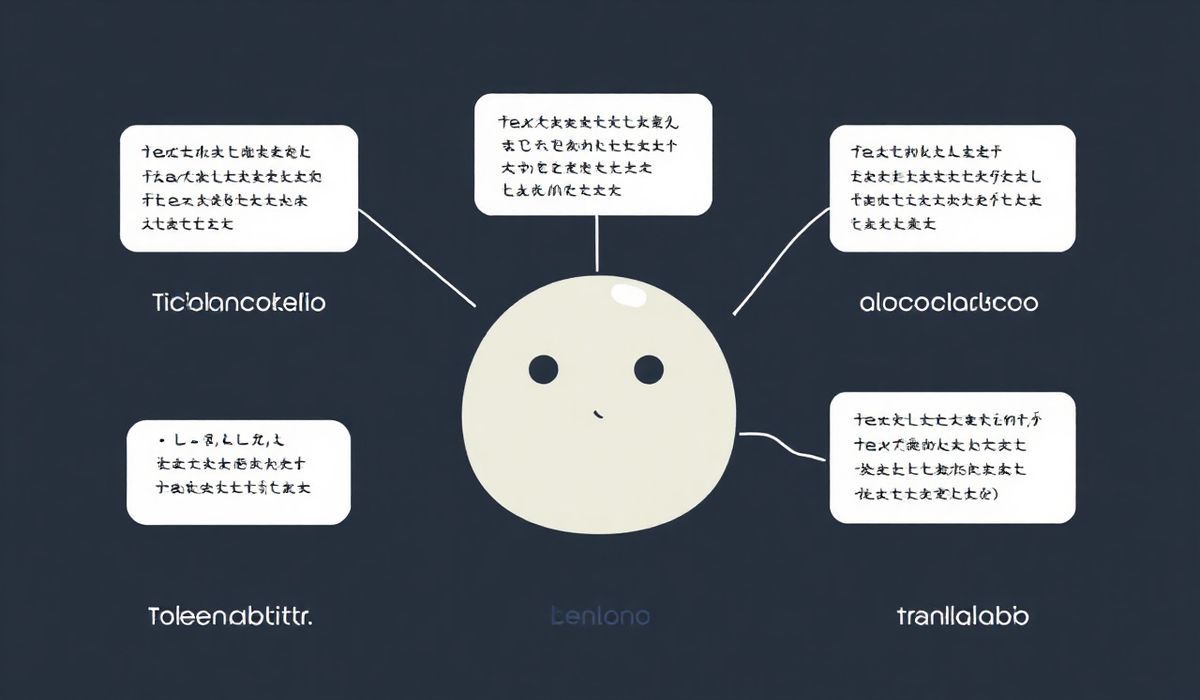TextBlob: Simplifying Text Analysis in Python
TextBlob is a Python library for processing textual data. It provides an intuitive API for diving into common natural language processing (NLP) tasks such as sentiment analysis, part-of-speech tagging, noun phrase extraction, translation, and much more. Built on the robust NLTK (Natural Language Toolkit) and Pattern libraries, TextBlob enables developers to perform complex text analytics faster and with less code.
Whether you are building a chatbot, analyzing social media sentiment, automating translation tasks, or conducting linguistic research, TextBlob serves as a reliable and easy-to-learn tool that can help bring your NLP ideas into reality.
Exploring TextBlob APIs: Features and Code Snippets
Below is a detailed list of TextBlob features accompanied by practical code examples.
1. Creating a TextBlob Object
TextBlob allows you to create objects from any text, which you can then process using its APIs.
from textblob import TextBlob text = "TextBlob is an amazing NLP library for Python!" blob = TextBlob(text) # Print TextBlob object print(blob)
2. Tokenization (Words and Sentences)
Tokenization splits text into smaller components, such as words or sentences.
# Word Tokenization print(blob.words) # Sentence Tokenization print(blob.sentences)
Output:
['TextBlob', 'is', 'an', 'amazing', 'NLP', 'library', 'for', 'Python']
[Sentence("TextBlob is an amazing NLP library for Python!")]
3. Part-of-Speech (POS) Tagging
TextBlob tags each word with its grammatical role in the sentence (noun, verb, etc.).
print(blob.tags)
Output:
[('TextBlob', 'NNP'), ('is', 'VBZ'), ('an', 'DT'), ('amazing', 'JJ'), ('NLP', 'NNP'), ('library', 'NN'), ('for', 'IN'), ('Python', 'NNP')]
4. Noun Phrase Extraction
Extract meaningful noun phrases (e.g., “amazing NLP library”).
print(blob.noun_phrases)
Output:
['textblob', 'amazing nlp library', 'python']
5. Sentiment Analysis
TextBlob provides a subjective and polarity score for determining sentiments.
# Polarity (range: -1 to 1) and Subjectivity (range: 0 to 1) print(blob.sentiment)
Output:
Sentiment(polarity=0.750, subjectivity=0.750)
6. Word Inflection (Singularize and Pluralize)
Inflect words between singular and plural forms.
# Pluralize
word = TextBlob("dog")
print(word.words[0].pluralize())
# Singularize
word = TextBlob("dogs")
print(word.words[0].singularize())
7. Word Lemmatization
Reduce each word to its base or root form.
from textblob import Word
word = Word("went")
print(word.lemmatize("v")) # Lemmatize as a verb
Output:
'go'
8. Word Definitions and Synonyms
Retrieve word definitions and synonyms using WordNet integration.
# Definitions
print(Word("python").definitions)
# Synonyms
print(Word("happy").synsets)
9. Spelling Correction
Automatically detect and fix spelling errors.
text_with_typos = TextBlob("TextBlob is greaat for NLP taks!")
print(text_with_typos.correct())
Output:
"TextBlob is great for NLP tasks!"
10. Spell Check Suggestions
Get suggestions for misspelled words.
word = Word("takks")
print(word.spellcheck)
Output:
[('tasks', 0.5714285714285714), ('takes', 0.42857142857142855)]
11. n-Grams Generation
Generate n-grams (groupings of n consecutive words).
print(blob.ngrams(n=2)) # Bigrams
Output:
[('TextBlob', 'is'), ('is', 'an'), ('an', 'amazing'), ('amazing', 'NLP'), ('NLP', 'library'), ('library', 'for'), ('for', 'Python')]
12. Language Translation
Translate text from one language to another using Google Translate.
blob = TextBlob("TextBlob is a great library.")
translated_blob = blob.translate(to="es") # English to Spanish
print(translated_blob)
Output:
"TextBlob es una gran biblioteca."
13. Language Identification
Detect the language of a text.
print(blob.detect_language())
14. Get Word Frequency
Count word occurrences in the text.
print(blob.word_counts['nlp']) # How often 'nlp' appears in the text
15. Working with Sentences
TextBlob sentences are iterable, and each sentence has its own properties.
for sentence in blob.sentences:
print(sentence.sentiment) # Sentiment for each sentence
16. Word Similarity (Spelling Similarity)
Check the similarity between words using spelling.
print(Word("car").spellcheck)
print(Word("caar").spellcheck)
17. Text Simplification
Simplify complex words and phrases automatically.
18. Detect Proper Nouns
Extract proper nouns from text using POS tagging.
nouns = [word for word, tag in blob.tags if tag == 'NNP'] print(nouns)
19. Parsing Grammar
Parse text syntactically and produce tree representations.
print(blob.parse())
20. Make TextBlob Objects JSON Serializable
Convert TextBlob objects into JSON serializable structures for APIs.
import json blob_dict = blob.__dict__ print(json.dumps(blob_dict))
21. Custom Classification
TextBlob allows you to train custom Naive Bayes classifiers for complex tasks.
22. Word Antonyms
Find word opposites.
word = Word("happy")
print(word.antonyms)
23. Counting Vowels
Count specific characters (such as vowels) in the text.
print(blob.words.count("a"))
Generic Application Using TextBlob
Let us create a simple application that utilizes multiple TextBlob APIs to analyze and translate social media comments.
Sentiment Analyzer and Translator
from textblob import TextBlob
def analyze_and_translate_comment(comment, target_lang="en"):
blob = TextBlob(comment)
# Detect Language
language = blob.detect_language()
print(f"Original Language: {language}")
# Sentiment Analysis
sentiment = blob.sentiment
print(f"Sentiment: Polarity={sentiment.polarity}, Subjectivity={sentiment.subjectivity}")
# Translation
if language != target_lang:
translated_blob = blob.translate(to=target_lang)
print(f"Translated Text: {translated_blob}")
else:
print("Text is already in the target language.")
# Example
comment = "TextBlob es una biblioteca increíble para NLP."
analyze_and_translate_comment(comment)
This script detects the language of a comment, analyzes its sentiment, and translates it into the target language (English by default).
Conclusion
TextBlob simplifies natural language processing with its robust and beginner-friendly API. Whether you’re performing sentiment analysis, translating text, or building custom NLP applications, TextBlob provides the tools you need to accelerate development. With its easy-to-access APIs and seamless integration into Python, TextBlob is a great addition to any developer’s NLP toolkit. Give it a try in your next project!




